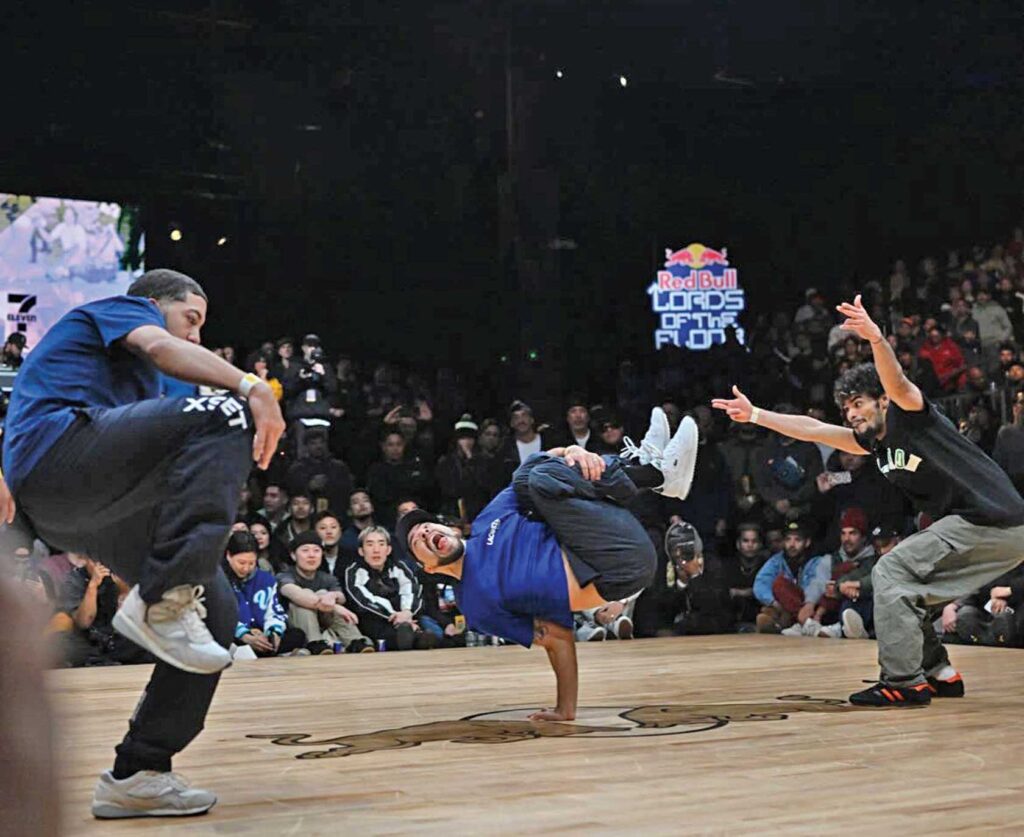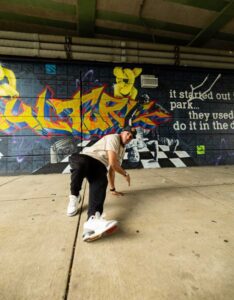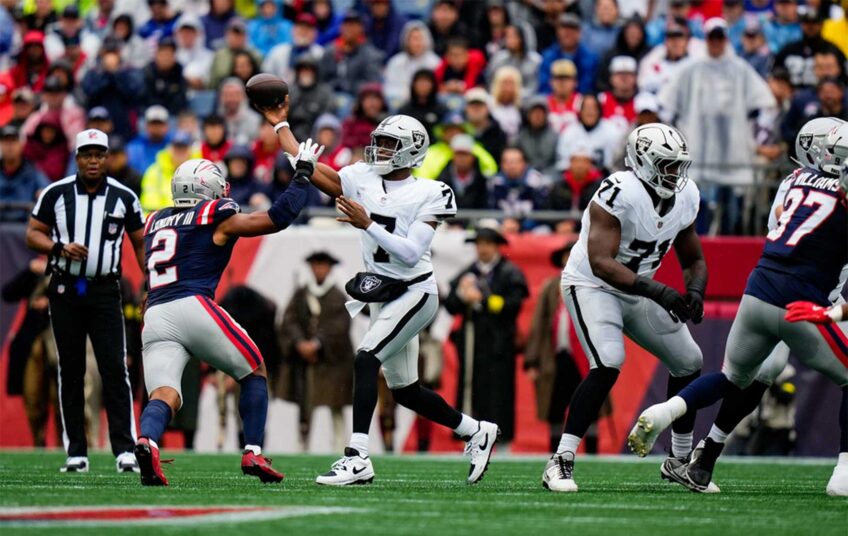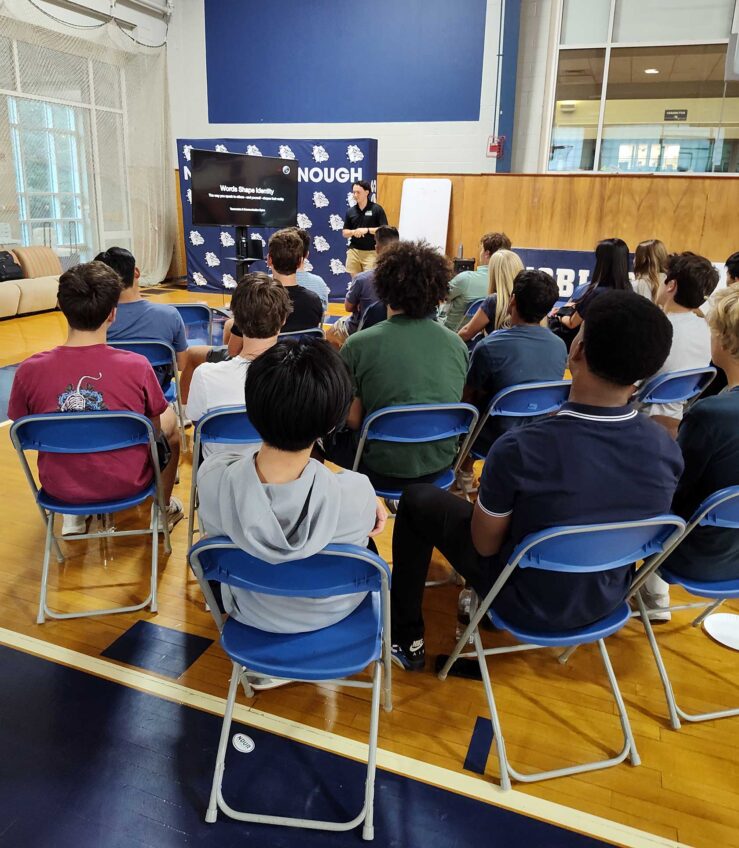
Banner Sports Sponsored by the Patriots Foundation
Break dancing, also known as breaking, is set to make its debut at the 2024 Paris Olympics, marking a significant milestone for the sport and the Olympic movement. This inclusion is part of the International Olympic Committee’s (IOC) effort to modernize the games and attract a younger, more diverse audience.
B-Boy El Niño, who has been breaking since the age of six, understands just how impactful this change is for the breaking community. El Niño, whose real name in Alex Diaz, has performed with artists like Missy Elliot and LL Cool J, and has cemented himself as a staple of the breaking community.
“I’m just a kid from Roxbury,” he said. “We’re all really excited about it. It’s exciting to see it being put onto a world stage. I want it to be a part of my legacy.”
Breaking originated in the South Bronx of New York City in the early ’70s. It is known for its acrobatic moves, intricate footwork and powerful spins, reflecting a blend of athleticism and creativity.
Breaking gained significant attention when it was included in the 2018 Youth Olympic Games in Buenos Aires. According to NBC Olympics, it drew over 1 million viewers, surpassing the audience numbers of many other sports. The event was declared an “outstanding success” by the Olympics, and now both organizers and athletes aim to bring that same energy and appeal to the biggest stage in sports.
For the breaking community, this inclusion is a validation of their art form and years of dedication. It opens new avenues for funding, sponsorship and growth, potentially inspiring a new generation of breakers.
Diaz said the community was thrilled at the idea of inclusion but had some concerns.
“For the breaking community as a whole, we were excited but also skeptical. We wanted to try to keep our sport and our art form as close to the essence of the dance as possible. That was our main request,” he said.
Breaking gains respect
The road to breaking into the Olympics began with its increasing recognition as a competitive sport. Major international competitions such as the Battle of the Year, the Red Bull BC One, and the World B-Boy Series played crucial roles in establishing breaking as a legitimate and respected discipline. These events highlighted the technical skill and physical demands of breaking, comparable to traditional Olympic sports.
The addition of breaking into the 2024 Olympics represents a shift towards inclusivity and cultural diversity, recognizing the global influence of hip-hop culture. Secondly, it provides a platform for breakers to gain international recognition and opportunities previously limited to niche competitions.
In the Olympics, breaking will feature both men’s and women’s competitions, with athletes competing in one-on-one battles. Each battle will be judged based on a set of criteria, including technique, creativity, and musicality. Judges will evaluate the complexity of the moves, the originality of the performance, and how well the dancers synchronize their moves with the music.
Diaz elaborates on the judging system: “You’re looking at the fundamentals and other things as well. What they call performativity — character, creativity, your presence on stage — all play a big role in how you get scored. Execution — like if you do a move and it’s not super smooth — you get tacked a couple of points for that. That counts for about 60% of your score.”

Muralist Tame Artz poses with El Nino in front of a Philadelphia mural celebrating the 4 elements of Hip Hop. PHOTO: Anthony Torcasio
The Paris 2024 Olympics will not only showcase the best breakers from around the world but also highlight the cultural roots and significance of breaking. As Diaz encourages, “I think that part of it is that we did a good job promoting these athletes and how cool it is. It’s extremely difficult to do what we do. I encourage anyone to try it, so it was important to get other people to support that part of it.”
Breaking, however, will not be included in the 2028 Los Angeles Olympics, a decision that has disappointed many in the community, especially given Los Angeles’ significant role in the history and development of break dancing. The city has been a cultural mecca for the art form, fostering talent and innovation within the breaking scene. “It’s sad because break dancing started in the U.S., a lot of break dancers are upset and sad about it. L.A. is also a hub for it. We thought we would have more support.” Diaz said. “It doesn’t mean we’re not trying for 2032.”
Unfortunately, Diaz will have to look to 2032 for his chance to go for the Gold. He was sidelined with an injury and is unable to compete in Paris.
The journey of break dancing from the streets of New York to the Olympic stage is a testament to its evolution and the growing recognition of its cultural and athletic value. The 2024 Olympics will be a historic moment for breaking, marking the beginning of a new era for this vibrant and dynamic sport.
“The dance and the sport have grown and evolved so much since the ’80s. You really, really have to be in good shape,” he said. “A lot of it comes down to stamina. Most battles are about the dance moves, yes, but also, who can last that long because it’s really difficult.”
“It’s a really big deal for everyone, no matter how they got there,” said break dancer B-boy El Niño. “Some athletes, like me, are supported by our sponsors. Red Bull helped me and supported me on my journey to qualify for the Olympics. Some athletes entirely support themselves. To us, that’s not what matters.”








